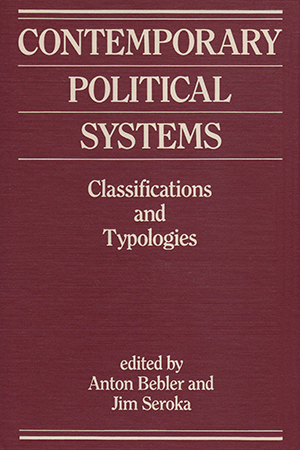
- 1990/384 pages
Contemporary Political Systems:
Classifications and Typologies
Classification systems and typologies, if properly developed, can help formulate research questions, determine agendas for inquiry, and lead to the development of scientifically testable hypotheses and general theory building. In political science, however, influential classifications and typologies become obsolete faster than in many other disciplines. They are also used highly sel ectively and are given various meanings in various political and cultural environments. It is therefore important that cross-cultural comparative work in this field be regularly updated, revised, and improved, and that the classifications and typologies used most often be reevaluated.
Designed to accomplish these tasks, this seminal book is represents a full spectrum of political, ideological, and cultural environments. It is intended, as well, as a contribution toward consensus building in the international community of political scientists.







